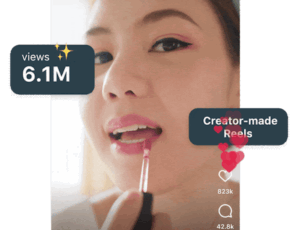This article is sponsored by GroundTruth.
As consumers continue to evolve the way they shop and interact with brands, accuracy has become more critical than ever for advertisers and publishers. Relationships across the ad tech spectrum now strongly depend on truth in data, and increasingly this applies not only to online data but to location-based data.
“If you’re going to work with a company that provides location-based solutions, you want to thoroughly trust their data sourcing and enrichment methods,” said Eddie Dingels, COO at location-based advertising technology company GroundTruth. “When you look at the importance of things like fraud and brand safety – that have been huge topics in our industry for a long time and that are growing within channels like CTV – the same should be considered for offline data.”
GroundTruth recently became just the second location-based ad tech provider to achieve MRC accreditation, and the first and only to receive accreditation across location, place and visitation data.
The MRC’s audit process examined and accredited GroundTruth’s three critical data sets: (1) location data, the technology that measures mobile location signals’ accuracy through latitude and longitude information; (2) place data, assessing the precision and breadth of place-mapping, including businesses and points of interest boundaries through GroundTruth’s proprietary contextual mapping technology, Blueprints; and (3) visitation data, the intersection between location signals and places, and which through other data points determines place visit authenticity.
Together, the accredited data sets, including the Blueprints mapping technology, give context to location data that advertisers can use to drive high-performing campaigns. Those data sets go beyond location to include actionable qualifiers, like store visit verification. National brands and local mom-and-pop shops can apply these insights to their campaign targeting to reach existing customers and new ones in ways that haven’t always been possible. For example, if an advertiser is trying to promote a new line of golfing equipment, it can use offline data to reach sports enthusiasts who have recently visited a golf course. Using audience data that has been accredited by a credible third party gives marketers the confidence that those marketing dollars aren’t being wasted but focused on generating actual business growth.
As part of the MRC process, GroundTruth went through extensive audits with Ernst & Young to verify its platform, identify potential biases in data sets like business categories, age and gender, and test the accuracy of their data with field testing.
GroundTruth’s MRC accreditation points to a larger appetite for trust, truth and transparency across the advertising spectrum.
The early days of data collection without a purpose or focus is coming to an end, Dingels says, and advertisers and publishers alike are needing to adapt. Still, he adds that it’s certainly not the data death knell the headlines might predict. Initial opt-in rates suggest that consumers who understand how publishers use their data, or who receive something in return for sharing it, are more likely to opt in and allow them to use it.
“If you’re a consumer, you have the control,” Dingels adds. “The part we’re focused on is ensuring the ads reaching them are relevant and beneficial to their experience when they do opt in.”













